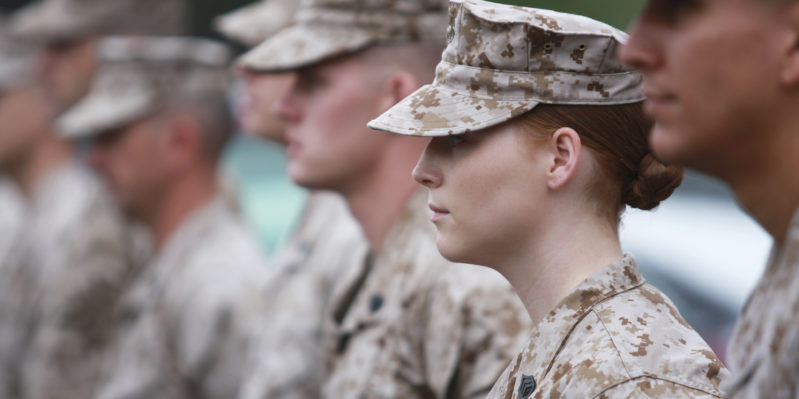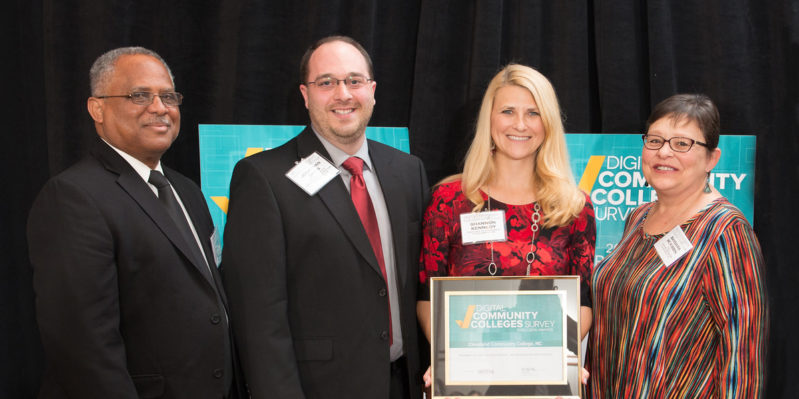
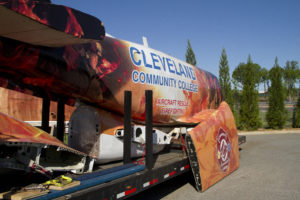
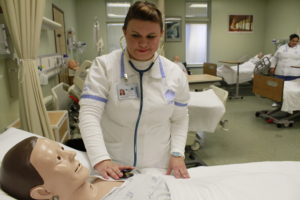
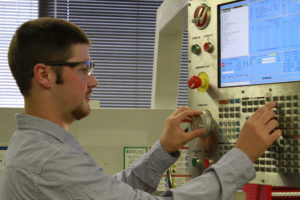
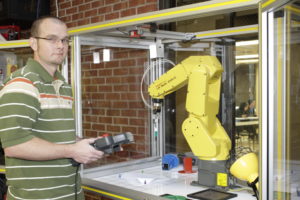
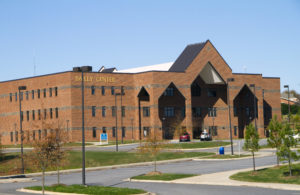
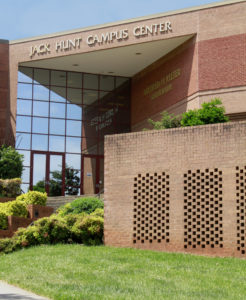
Last year, Cleveland Community College celebrated 50 years of providing educational opportunities to the citizens of Cleveland County and the surrounding area. That anniversary was a milestone for the College, but certainly not a stopping point. CCC is committed to continuing the growth and evolution it has experienced over the last five decades.
If you have lived in Cleveland County for a long time, you may remember when Cleveland Community College was Cleveland Technical College or Cleveland Tech. You may also assume that programs and offerings inside the College are pretty much the same as they were when it was Cleveland Tech. That assumption would be wrong.
Many changes have occurred during the last 50 years, inside and outside. Most obvious have been the changes to the campus, with the addition of new buildings and facilities. Perhaps less obvious, but just as important has been CCC’s innovative spirit, responding to industry needs with new programs, and providing for the needs of students, faculty and staff through technology.
CCC showed its innovative spirit last year with the creation of the Machinist Academy and Robotics Academy programs developed in response to local industry needs. These 16-week programs are fast tracks for students to obtain the knowledge and skills needed to work at local companies as machinists or robotics technicians. Students in these programs also learn valuable skills in communication, résumé writing, interviewing and more. Through a partnership with Cleveland County, qualified students can receive scholarships to cover the entire cost of this training, including books and supplies.
Mission Critical Operations, another new program at CCC that welcomed its first students last fall was developed in response to a growing need for workers who know how to keep facilities and computer networks operating 24/7. CCC, as the lead organization in a consortium of community college and university partners, received more than $23 million in grant funding from the U.S. Department of Labor Employment Training Administration to develop the program.
Training students for these in-demand careers requires use of technology. That’s why CCC employs technology across its campus to help faculty teach and students learn. A few years ago, CCC began using Samsung Cloud displays in computer labs, classrooms and other areas of the College. This technology allows easy access to classroom software, even when different classes are held in the same room. For example, the Cloud technology allows CCC to schedule an accounting class, a photography class and an English class, each of which requires access to different software, in the same classroom without having to install the software on individual computers. That saves time and money, and it allows the College to maximize the use of classroom space. More importantly, it allows students to login to any Cloud display on campus and access their work. A student can leave their classroom, walk across campus to the library and login at another Cloud display to continue working.
In addition, over the years CCC has taken advantage of innovations in technology to add new tools that help students have a better learning experience and become better equipped to enter their chosen field. One of the first programs offered when CCC opened its doors 50 years ago was nursing. That program is still offered today, but is training students using modern technology. Nursing students learn how to care for patients using specially-designed mannequins.
Last summer, a section of CCC’s Jack Hunt Campus Center was remodeled to accommodate a new Data Center and high-tech classroom, which will be used to help train students for successful careers in the growing field of mission critical operations.
In automation and robotics courses students gain hands-on experience programming and using robots to perform tasks. Students studying biotechnology have a cleanroom, an enclosed space in which airborne contaminants and pollutants are kept within strict limits. These conditions are required in many areas of this industry including manufacturing, such as making electronic components.
With the innovation of 3D printing and its quickly expanding use in manufacturing, CCC purchased a 3D printer. Use of the printer has been incorporated into courses that train students in skills related to creating and manufacturing products.
Welding students are using a simulator to help them learn proper techniques and gain virtual experience working under various conditions. At the Brown Emergency Training Center, students are using simulators to train for situations such as flash-over fires and aircraft rescues.
Those are all programs that use technology for hands-on training of students. In addition, CCC has employed technology to educate and train students through distance learning. Many courses, and in some cases entire programs can be completed entirely online. This option allows students to have a more flexible schedule and, at least to some degree, work at their own pace. The media-rich courses incorporate web-based resources, video, e-books, discussion boards, virtual chat, and more and are taught by experienced, creative faculty.
CCC was recently recognized for its innovative use of technology by the 2015-2016 Digital Community Colleges Survey. The College ranks seventh in the nation among community colleges of similar size. The annual survey, now in its eleventh year, examines how community colleges across the country use different technologies to improve services for students, faculty, staff and the community.
Technology plays a huge part in most people’s lives, from the smartphones they carry in their pockets to the tablets they use to research vacation spots. It should probably be no surprise that technology now provides many of the tools used in educating and training today’s students to become tomorrow’s workforce. At CCC, staff and faculty are dedicated to providing their students with the best possible education and training experience.


